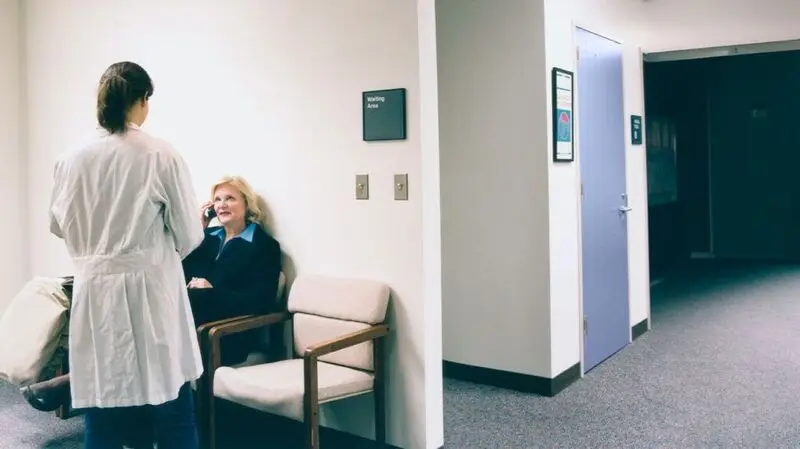
- Colorectal cancer is the third most commonly diagnosed cancer in men and women in the United States, excluding skin cancers.
- Screening for colorectal cancer has reduced rates of cancer since the mid-1980s.
- A new screening test developed in the Netherlands may improve accuracy of colorectal cancer screening.
A new stool test could offer improved detection of precursors to colorectal cancer.
That’s according to a new
The researchers from the Netherlands say the test they developed is more effective than currently available stool tests at detecting larger polyps.
“The current test performs well but leaves room for improvement,” Gerrit Meijer, principal investigator at the Netherlands Cancer Institute and co-author of the research, said in a press statement.
“We want to be able to detect the tumors before they have become invasive, that is at the stage of larger premalignant polyps. Treating physicians then can remove these polyps during a colonoscopy, rather than by surgery,” Meijer added.
FIT tests are fecal immunochemical tests. They are a type of stool test that many countries use in screening programs for colorectal cancer.
They work by detecting the presence of hemoglobin in stool samples. Hemoglobin is a type of protein found in blood.
“The big benefit of these tests that are stool based are the convenience of being able to do them in your own home. So, overall, they are very convenient to do and that’s why we’re happy that it is a screening option,” Folasade May, PhD, an associate professor of medicine in the Vatche and Tamar Manoukian Division of Digestive Diseases at the University of California Los Angeles, told Medical News Today.
“These tests are actually quite good at finding cancers,” added May, who was not involved in the research. “They are also pretty good at finding these pre-cancerous polyps that we also care about a lot. But they’re not going to be as good as finding a pre-cancerous polyp as, say, a colonoscopy. The biggest [downside] is that they’re not as good at detecting these precancerous lesions.”
The researchers say their stool test is more effective than the FIT test at detecting precursors to colorectal cancer, such as polyps. They have called it the multitarget fit test (mtFIT).
Their test detects hemoglobin, the protein found in blood as well as two other proteins, calprotectin, and serpin family F member 2.
The researchers compared the efficacy of their test with standard tests by enlisting 13,187 people to give stool samples. They gave the samples to both the mtFIT and regular FIT test.
The researchers reported that their test led to more positive test results than the regular FIT. The mtFIT detected abnormalities in 299 people while the regular FIT detected abnormalities in 159 people.
“The new test detects more larger polyps without a significant increase in ‘false-positive’ results and thus unnecessary colonoscopies. This is exceptionally good news,” Meijer said.
Excluding skin cancers, colorectal cancer is the
The American Cancer Society estimates there will be roughly
Colorectal cancer rates have
“With colorectal cancer screening is powerful in two ways,” May said. “Number one, it can help us with early detection, which is finding a cancer early enough that it’s curable. But I think even more powerful than that, colorectal cancer is a very unique cancer in that we also can find precancerous lesions with screening. And when we find and remove a precancerous polyp, the patient never gets a diagnosis of cancer. So imagine that you have the power of a technology that is eliminating cancer diagnoses. And that’s the way to think of the power of colorectal cancer screening.”
In the United States there are currently
While a colonoscopy is considered among the most accurate of screening options, it comes with challenges.
“The problem with colonoscopy is that it’s just not as accessible as it probably should be… It’s just that there’s just a lack of resources and a lack of basically qualified people to do colonoscopy,” Dr. Babak Firoozi, a gastroenterologist at MemorialCare Orange Coast Medical Center in California, told Medical News Today.
“If we could find a stool test, to essentially filter out or weed out all those people who may not need the colonoscopy, it would provide access for everyone who needs one,” added Firoozi, who was not involved in the research. “And it’ll maybe allow some people who do not need a colonoscopy to not ever get one. This new test really comes very close. It comes a long way to helping, but it’s not quite there yet.”
Estimates suggests there will be
It is the
Screening for colorectal cancer is a
Experts say whether a person chooses a stool test, colonoscopy or other screening method for testing, the most important thing is to get tested.
“Get something done. Whether it’s stool based testing or colonoscopy. Go with what you’re comfortable with,” Firoozi said.
“So if you if you’re OK with doing the colonoscopy and you have access to it, by all means, get it. If access is a problem, or if you’re not comfortable undergoing a procedure, at least do the stool test,” he said.





